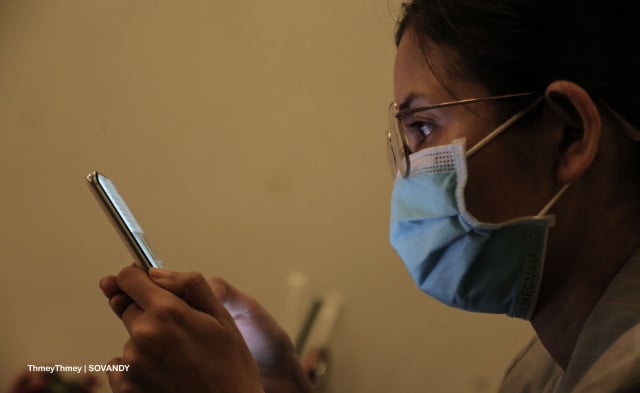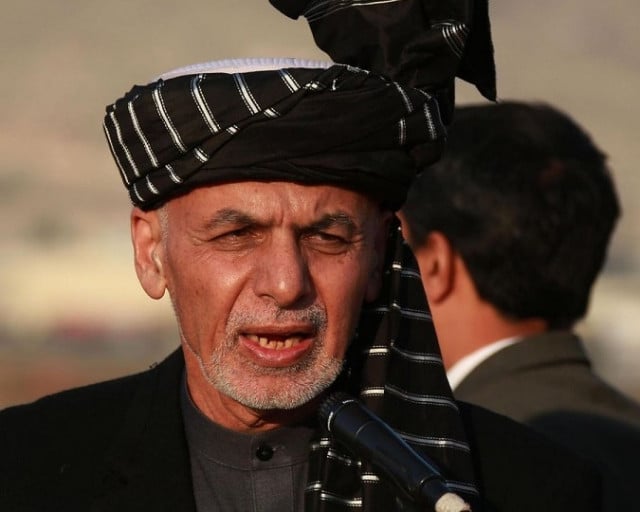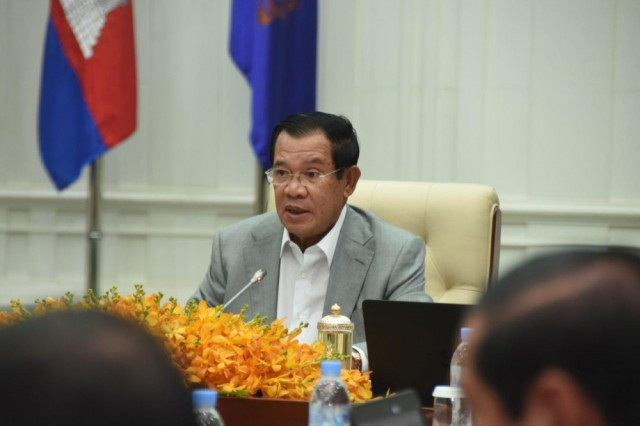Cambodian Youth’s Awareness of the Safe Use of Social Media Remains Limited

- By Sou Sokunthea
- January 1, 2022 11:42 AM
Young people in the countryside are especially exposed to misleading information, scams and private-information breach, social media experts say
PHNOM PENH--While according to the consumer data company Statista, more than 71 percent of the population in Cambodia is using social media—people’s awareness of the need to protect their personal information and use their judgement when looking at content is believed to still be limited.
This may especially be the case among young people. As Soeurng Sreypich, a second-year student in mathematics at the Royal University of Phnom Penh, explained in early December, the fake announcements and news she has seen on Facebook and other platforms may even interfere with learning.
Mok Samnang Dariya, a 12th grade student at Tuol Tumpoung High School in Phnom Penh, said she is especially concerned about social media being used to threaten some people, to lure others into money scams, and can even amount to sexual harassment and lead to kidnapping. Which is why she takes action whenever she sees something she believes false. “Sometimes I see fake news posts, [so] I leave comments or report [the posts],” she said in early December.
A report from UNESCO entitled Media and Information Literacy (MIL)—mentioned that literacy or an understanding of social media and the news can help people assess the information they receive and make the difference between facts and fiction. In addition, the report said, grasping how social media work contribute to making them aware of ethics and the rights of internet users to access and take part in the promotion of equality, peace, the freedom of voicing and responding to comments, as well as the right to receive news.
Keo Kounila, co-founder and management partner of Mekhala Radiant Communications, believes that great progress is been made among the population regarding understanding social media. “There is an increasing awareness on media and information literacy in Cambodia as many groups and organizations have come to realize the importance of educating the public and individuals on these issues,” she said in interview in December.
Nowadays, it is not only young people but also adults who need to learn about social media and information literacy if their knowledge is limited, Kounila said.
“It depends on them to educate themselves, as well as organizations, schools or companies about the importance of MIL [media and information literacy] for self-development and youths’ professionalism,” she stressed.
According to Sor Chandara, project coordinator of the media training DW Akademie, Cambodian youths are actively using social media, but young people living in countryside or rural areas have been found to become more easily victims through the use of social media than those living in cities in terms of security. “Their knowledge of creating an account and the process of doing so is still limited,” he said, among young people outside city areas.
To help address the issue, Chandara has been working with DW Akademie to expand media knowledge and information literacy through learning programs, training courses and by building capacity so this information can be offered in schools in rural areas and cities, he said in early December.
Kann Vicheika, a trainer in Media and Information Literacy at DW Akademie, said that, since social media are used for frauds and to scam or intimidate others, young people must understand this when they use social media, which is why they must acquire information literacy and knowledge of social media not to fall victims of criminals, she said in interview in late November. Moreover, she said, “[i]f they don’t know or understand how to express ideas ethically or safely, they are more likely to face many problems, [which may end up] affecting themselves, their education, career, reputation, safety, and time.
“Nowadays, professional organizations and some schools are promoting and teaching youth media and information literacy, but it is not enough yet,” Vicheka said. People of all ages must be informed about the media and social media, she added.
An effort should be made to raise awareness of the media, develop information literacy, including the responsible use of social media, Vicheka said, so that people can evaluate the credibility of the news and information they receive, learn to express themselves on social media or the internet while ensuring their own safety and their community’s security.















